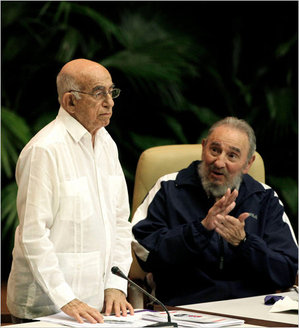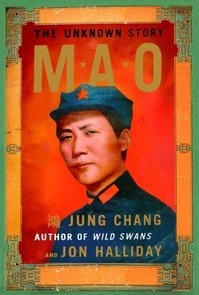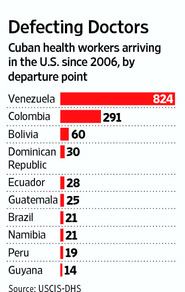 “In this April 22, 2000 file photo, Elian Gonzalez is held in a closet by Donato Dalrymple, one of the two men who rescued the boy from the ocean, right, as government officials search the home of Lazaro Gonzalez, early Saturday morning, April 22, 2000, in Miami. Armed federal agents seized Elian Gonzalez from the home of his Miami relatives before dawn Saturday, firing tear gas into an angry crowd as they left the scene with the weeping 6-year-old boy.” Source of caption and photo: online version of the Omaha World-Herald article quoted and cited below.
“In this April 22, 2000 file photo, Elian Gonzalez is held in a closet by Donato Dalrymple, one of the two men who rescued the boy from the ocean, right, as government officials search the home of Lazaro Gonzalez, early Saturday morning, April 22, 2000, in Miami. Armed federal agents seized Elian Gonzalez from the home of his Miami relatives before dawn Saturday, firing tear gas into an angry crowd as they left the scene with the weeping 6-year-old boy.” Source of caption and photo: online version of the Omaha World-Herald article quoted and cited below.
Today (April 22, 2011) is the eleventh anniversary of one of the darkest days in American history—when the Democratic Clinton Administration seized a six year old child in order to force him back into the slavery that his mother had died trying to escape.
(p. 7A) MIAMI (AP) – When federal agents stormed a home in the Little Havana community, snatched Elian Gonzalez from his father’s relatives and put him on a path back to his father in Cuba, thousands of Cuban-Americans took to Miami’s streets. Their anger helped give George W. Bush the White House months later and simmered long after that.
. . .
Elian was just shy of his sixth birthday when a fisherman found him floating in an inner tube in the waters off Fort Lauderdale on Thanksgiving 1999. His mother and others drowned trying to reach the U.S.
Elian’s father, who was separated from his mother, remained in Cuba, where he and Fidel Castro’s communist government demanded the boy’s return.
Elian was placed in the home of his great-uncle, Lazaro Gonzalez, while the Miami relatives and other Cuban exiles went to court to fight an order by U.S. immigration officials to return him to Cuba. Janet Reno, President Bill Clinton’s attorney general and a Miami native, insisted the boy belonged with his father.
When talks broke down, she ordered the raid carried out April 22, 2000, the day before Easter. Her then-deputy, current U.S. Attorney General Eric Holder, has said she wept after giving the order.
Associated Press photographer Alan Diaz captured Donato Dalrymple, the fisherman who had found the boy, backing into a bedroom closet with a terrified Elian in his arms as an immigration agent in tactical gear inches away aimed his gun toward them. The image won the Pulitzer Prize and brought criticism of the Justice Department to a frenzy.
. . .
The Cuban government, which tightly controls media access to Elian and his father, said neither is willing to give an interview. A government representative agreed to forward written questions from the AP to Elian, but there has been no response.
Pepe Hernandez, president of the Cuban American National Foundation, said his group predicted in 2000 that Elian would become a prop for the Castro government if he were returned. It was one reason, he said, the group fought for him to be kept in the U.S. and would do it again today, although behind the scenes to avoid negative publicity for the Cuban-American community.
“We knew what this kid was going to be subjected to,” Hernandez said. “And time has proven us right.”
For the full story, see:
JENNIFER KAY and MATT SEDENSKY. “10 years later, few stirred by Elian Gonzalez saga.” Omaha World-Herald (Thurs., April 22, 2010): 7A.
(Note: ellipses added.)
(Note: the online version of the article is dated April 21, 2010 and has the title “10 years after Elian, US players mum or moving on.”)







